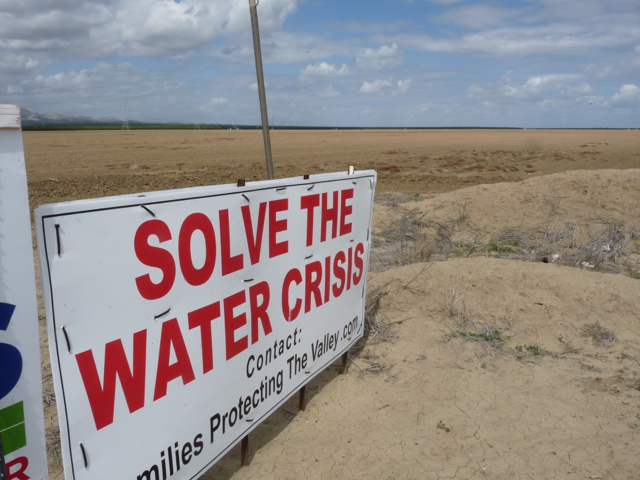
By Sen. Tom Berryhill; Ag Alert
In the waning hours of the legislative session, three bills that will drastically alter California’s groundwater management were passed with little vetting by the public or stakeholders impacted by the proposed changes. Senate Bill 1168 and Assembly Bill 1739 had been making their way through the legislative process, but in a completely different form than what was presented in the final days of the legislative session. Senate Bill 1319 was added to the package with just hours to go and voila, the legislative leadership declares a negotiated groundwater management package that works for all of California.
Far from it. “Negotiated” implies people of opposing viewpoints had input, something that did not happen.
Almost universally, agriculture was opposed, and I would imagine had it not been “negotiated” behind closed doors, there would have been an outcry from other regions and stakeholders throughout the state as well. Make no mistake, these groundwater bills will radically change decades of California water policy and give unprecedented authority to the state’s water bureaucracy to declare winners and losers. All without an appeals process. This is no way to craft policy.
Legislators of both political parties immediately sent a joint letter to Gov. Jerry Brown requesting that he veto the bills and call a special session of the Legislature to develop a reasonable groundwater management plan.
Earlier this summer, the Legislature put together groundbreaking water bond legislation. We did it in the light of day with months of negotiations and years of work behind the policy changes. These negotiations were a true victory for the people of California and a shining example of how well we can do something when we work together.
As a farmer and a Californian, I am absolutely concerned about increasing conditions of overdraft in many groundwater basins and the long-term effects on access to groundwater and land. But I believe California is playing a dangerous game if it pursues the one-size-fits-all approach of these bills.
Add into the mix a devastating drought that has severely tested our ability to prioritize where dwindling supplies of water should go—agriculture, environment or homes—and any solution becomes murkier.
Some basins have been critically overdrafted for decades, and in those instances state oversight may be an appropriate option as a way to spur local-management improvements. However, other basins have little or no overdraft problems or already have effective management systems in place. These bills treat all scenarios the same, a de facto punishment of the basins doing it right.
What started earlier this year as a legislative effort to remedy overdraft of aquifers in specific areas of the state morphed into a policy package that addresses issues well beyond mitigation of overdraft, all done at the last minute, without policy hearings, in the final weeks of the legislative session.
The regulatory regime for groundwater extraction enacted in these bills will not only invite lawsuits, it turns a blind eye to the differences between the 500-plus water basins in California and ignores ongoing local overdraft mitigation efforts. This is a bureaucratic power grab by the state’s water agencies, not an honest solution to a problem.
It took us more than 10 years to craft a good water bond that addresses the needs of a variety of communities, interest groups and industries. Was three weeks enough time to fully consider and seek consensus on the numerous, substantial policy changes made to groundwater management? I think not.
In the coming years and decades, the authorities granted in this bill will radically change the landscape of groundwater management. That will have a de-stabilizing impact on those who depend on groundwater supplies, particularly in Northern and Central California, thus the virtually unanimous opposition of the agriculture community to these proposals.
Yes, it is time to craft groundwater regulation that meets today’s needs, but these bills won’t get us there. Let’s go back to the drawing board and craft a narrower, more effective measure focused on basins where real problems exist, encouraging them to implement management measures modeled by other regions and providing a mechanism for the state to partner with areas when local management fails. We came together and passed the water bond; we can, and should, do the same for groundwater management.








